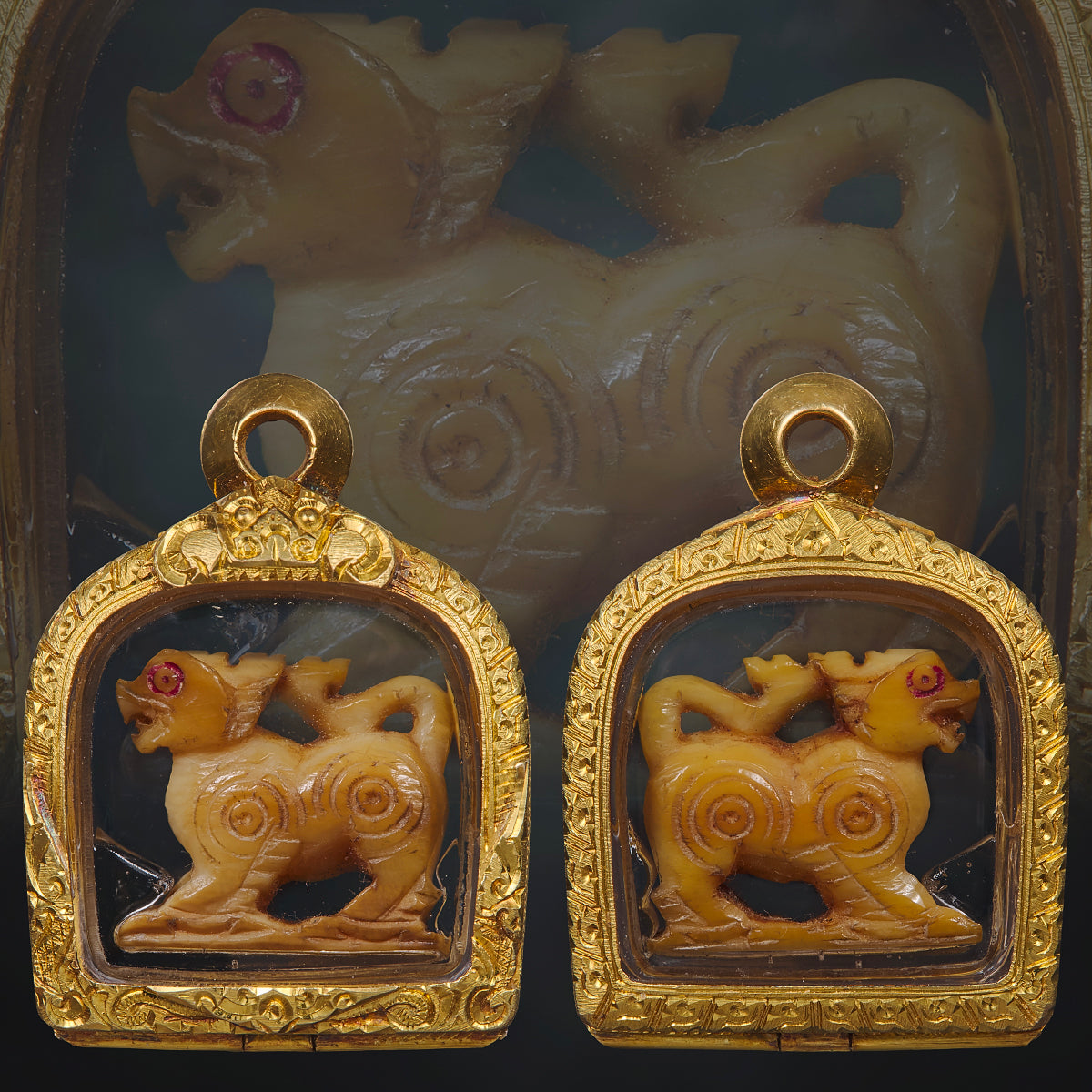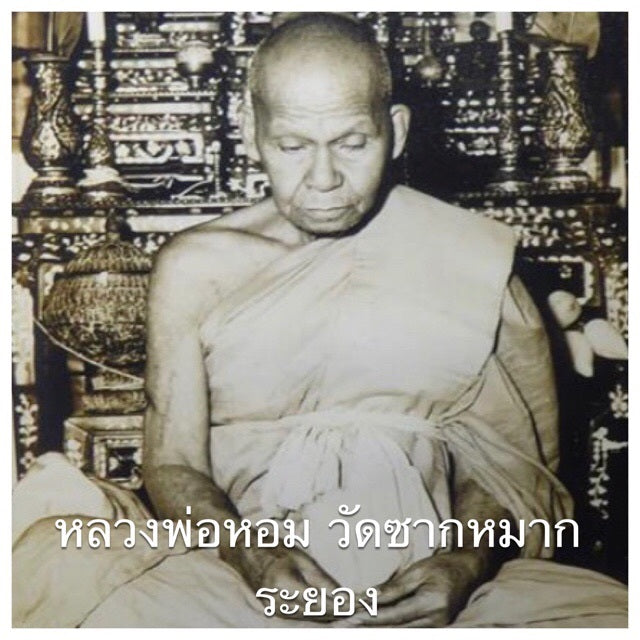OOBThaiAmulets
Lp Hom Wat Sak Mak
Lp Hom Wat Sak Mak
Couldn't load pickup availability
Superstar piece in "Singh Siam" Book 2 time
Goldbox included
Luang Phor Hom Chandachoto
(Phra Khru Phawananujok)
Wat Sak Mak, Ban Chang District, Rayong Province
Early Life
Luang Phor Hom was born on a Monday in the 10th lunar month of B.E. 2433 (1890) in Ban Samnak Thon, Rayong Province. His birth name was Hom Thongsamrit, son of Mr. Samrit and Mrs. Phum Thongsamrit. He had two elder sisters and was the youngest in the family. As a youth, he helped his parents with farming and selling forest goods at nearby markets.
He served in the Royal Thai Navy for two years, during which time he maintained discipline and was respected for his calm and kind nature. After leaving military service, he returned to village life, married a local woman named Jiam, and had three sons.
Ordination and Monastic Path
At age 36, Luang Phor Hom was ordained as a monk in B.E. 2469 (1926) at Wat Thap Ma, Rayong. His preceptor was Luang Phor Khaw of Wat Thap Ma, and he studied under Luang Phor Chuen of Wat Map Kha. Despite his late ordination, he quickly distinguished himself through diligence and rapid mastery of Buddhist scriptures and practices.
Luang Phor Chuen once predicted, "One day, Khun Hom will be fragrant on the wind"—a metaphor for becoming widely revered. True to this, Luang Phor Hom would later gain nationwide fame.
Founding Wat Sak Mak
In B.E. 2471, Luang Phor Hom left Wat Map Kha to return near his birthplace. Passing through the jungle area of Sak Mak, then a deserted forest home to wild animals, he discovered an abandoned forest monastery. He vowed to restore it and took up residence in nearby Khao Nang Yong Cave for meditation.
While living in the cave, wild elephants and tigers were often nearby, but none harmed him. In fact, the elephants became tame and helped him transport wood for temple construction—a miracle that sparked the locals' deep reverence for him.
Over time, he transformed Wat Sak Mak into a thriving spiritual center and built multiple structures including the main ordination hall, library pavilion, and monks’ quarters.
Spiritual Power & Miracles
Luang Phor Hom was known not only for his deep meditative attainments but also for miraculous events, such as:
-
Controlling wild elephants by simply speaking to them.
-
Saving a pilot's life: A U.S. Air Force pilot stationed in U-Tapao who wore Luang Phor Hom's image amulet survived a plane crash unharmed while others were killed or injured.
-
Charm of his “Ivory Singh” (magical lion) amulets, credited with protecting wearers from injury during fights and accidents.
-
Stopping poachers: When hunters sought to kill elephants near his temple, he warned the animals telepathically, and they hid within temple grounds, avoiding capture.
He also practiced traditional Thai medicine, learned from his father, and was sought after by dozens of villagers each day for healing.
Another unique knowledge he preserved was the esoteric ritual of “extending the land’s fortune” (ต่อชะตาดิน). He could spiritually restore land that had lost prosperity, often by burying consecrated stones, resulting in improved luck and success for landowners.
National Recognition
In B.E. 2500, Luang Phor Hom was among the 108 venerable monks invited by the Thai government to consecrate amulets during the 25th Buddhist Century Ceremony (held at Sanam Luang). His reputation was equal to other great monks of the time like Luang Phor Klan, Luang Phor Toh, Luang Phor Kuay, and Luang Phor Tim.
In B.E. 2507, he was officially granted the ecclesiastical title Phra Khru Phawananujok, recognizing his contributions to the Sangha and the Thai Kingdom.
Final Years and Passing
Luang Phor Hom passed away peacefully at 5:00 AM on April 13, B.E. 2520 (1977 CE) at Apakornkiatwong Hospital, Royal Thai Navy Base, Sattahip. He was 87 years old with 51 years in the monkhood.
His royal cremation ceremony was held at Wat Sak Mak on April 23, B.E. 2521, attended by thousands. His sacred objects, including Singh amulets, guman figures, oils, ivory figures, yantra cloths, takrut, and medallions, remain highly respected and collected for their reputed spiritual power and protection.


-
Free Shipping for Singapore| $15 Worldwide | $60 USA For Items Below $350

